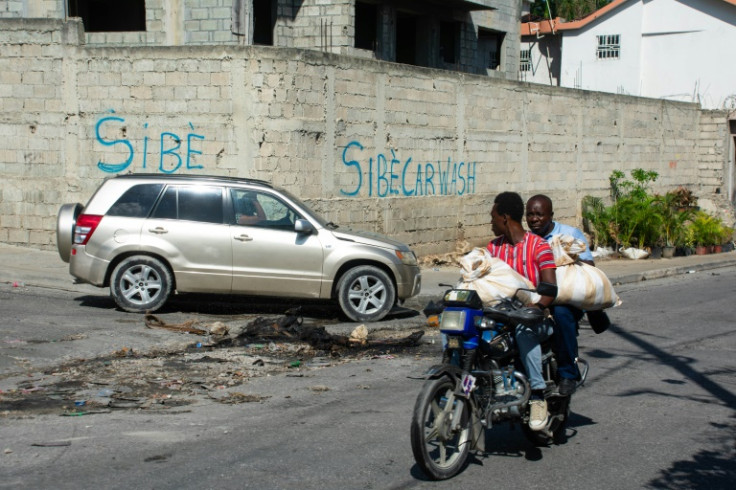
Members of Haiti's so-called self-defense gangs, which claim to fight gangs controlling practically all of the country's capital, have become a "significant source of human rights abuses," the United Nations said.
The Washington Post noted in an article that groups are increasingly committing crimes while fighting in the streets of Port-au-Prince. Some include current and former police officers and are equipped with high-caliber firearms and ammunition. According to the UN's office on drugs and crime, some groups have been colluding with gangs.
The outlet highlighted a May incident in which vigilantes rampaged through a town in the countryside, torching buildings and attacking a church. The Miami Herald noted back then that the incident, which took place in the Artibonite region, killed 15 people.
A witness of the episode told the outlet that members of the gangs "broke the locks, ransacked the church and pulled out machetes." Then they "started hacking people," including beheadings.
Another case involves a group storming a customs office on the border the country shares with the Dominican Republic. There, members of the brigade assaulted agents and looted the office before seizing vehicles. They have also set a checkpoint to collect fees from truckers transporting cargo into the country, a move agents likened to those of gangs.
"Although these groups often serve as the last remaining security mechanisms in many areas, they violate fundamental human rights, including the right to life and the right to a fair trial, and fuel further violence," Miroslav Jenča, the UN's assistant secretary general for Europe, Central Asia and the Americas, told the body in early July.
The UN has also detailed that gangs have "near-total control" of the country's capital. Ghada Fathy Waly, executive director of the U.N. Office on Drugs and Crime, told the body's Security Council last week that about 90% of Port-au-Prince is now under gang control. He added that areas that had so far escaped violence, like southern Haiti, are now seeing sharp increases in violence.
"And in the east, criminal groups are exploiting land routes, including key crossings like Belladere and Malpasse, where attacks against police and customs officials have been reported," the official added.
The transitional government has attempted to mount counter attacks, recently hiring mercenaries that are operating explosive-laden drones. According to a report by the National Human Rights Defense Network and picked up by InSight Crime, drone operations have killed at least 300 gang members and wounded 400 more.
© 2025 Latin Times. All rights reserved. Do not reproduce without permission.





